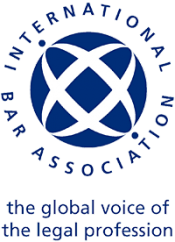
On 30 August 2016, the Presidency of the International Criminal Court (ICC) made public an important decision re-affirming the Court’s positive obligation to provide an effective right to family visits for ICC detainees, including by providing funding for such visits. In the same decision, the Presidency expressed concern that the Trust Fund for Family Visits ‘has reached a critically low level’.[1]
The ICC fulfils its mandate of investigating and prosecuting war crimes, crimes against humanity, and genocide in compliance with the rights of the accused, as recognised in the Court’s Statute and other legal texts. The system of international justice created by the Rome Statute requires all stakeholders to support the ICC to deliver justice in a fair manner. While the Trust Fund for Family Visits may also be funded by non-States Parties, non-governmental organisations, civil society, individuals and other entities, [2] States Parties have a special role to play.
Aurélie Roche-Mair, Director of the International Bar Association (IBA)’s ICC and International Criminal Law (ICL) Programme stated that: ‘The Assembly of States Parties (ASP), as the legislative and supervisory mechanism of the Court, is responsible for the detention system it created and should support its functioning with full respect for the human rights of suspects and accused persons. In international law everyone shall be presumed innocent until proven guilty and, in view of the average length of the proceedings at the ICC, guaranteeing the right to family visits is of fundamental importance .’
The right to family visits is recognised in the legal texts of the ICC as well as international human rights jurisprudence and instruments[3]. In a decision of March 2009, the Presidency of the ICC declared that in order to render the right to receive family visits effective, the Court had the obligation to fund these visits for indigent detainees.[4] The ASP opted to establish a Trust Fund for Family Visits within the ICC Registry, to be funded by voluntary donations, in lieu of funding the visits through the Court’s regular budget.[5]
However, since its creation in 2010, the Trust Fund for Family Visits has received very little support and its current balance is minimal, putting the rights of indigent accused in jeopardy.
In its recent decision, ‘to preserve the effectiveness of the system for all indigent detainees’, the ICC Presidency urges the Registrar to actively seek donations for the Trust Fund for Family Visits.
The IBA calls on States Parties to make voluntary contributions before the 2016 annual session of the ASP, in order to uphold the fairness and sustainability of the ICC’s criminal justice administration.
About the ICC & ICL Programme
The IBA commenced the ICC programme in 2005. The Programme monitors issues related to fairness and equality of arms at the ICC and other Hague-based war crimes tribunals and encourages the legal community to engage with the work of these Courts. The IBA’s work includes thematic legal analysis of proceedings, and ad hoc evaluations of legal, administrative and institutional issues which could potentially affect the rights of defendants, the impartiality of proceedings and the development of international justice.
The Programme also acts as the interface between the Courts and the global legal community. As such, special focus is placed on monitoring emerging issues of particular relevance to lawyers and collaborating with key partners on specific activities to increase engagement of the legal community on ICC and ICL issues.
Programme information is disseminated through regular reports, expert discussions, workshops and other events and expert legal analysis on issues relevant to our mandate.
Based at the Peace Palace in The Hague the IBA’s ICC & ICL programme consults and interacts with Courts’ officials, civil society organisations, academics and international lawyers.
[1] ICC-RoR221-02/16-3-Red. Public redacted version of Decision on the ‘Application to review the “Decision on Complaint to the Registrar by [REDACTED] concerning Supported Family Visit” dated [REDACTED] 2016’, 30 August 2016.
[2] ASP, Resolution ICC-ASP/9/Res.4, 10 December 2010, X,Family visits for indigent detainees, para 1.
[3] See e.g. Regulations of the Court, Regulation 100 (1) and Regulations of the Registry, Regulation 179 (1); United Nations Body of Principles for the Protection of All Persons Under Any Form of Detention or Imprisonment 1988 and United Nations Revised Standard Minimum Rules for the Treatment of Prisoners 2015.
[4] ICC, Prosecutor v Germain Lubanga and Mathieu Ngudjolo Chui, ICC-RoR217-02/08-8, Decision on ‘Mr Mathieu Ngudjolo’s Complaint Under Regulation 221(1) of the Regulations of the Registry Against the Registrar’s Decision of 18 November 2008’, 10 March 2009.
[5] ASP, Resolution for Family visits for indigent detainees, ICC-ASP/8/Res.4, 26 November 2009; ASP, Resolution ICC-ASP/9/Res.4, 10 December 2010, X.
Click the following link to read this article and more on the official IBA website:
http://www.ibanet.org/Article/Detail.aspx?ArticleUid=5ab86d93-3466-4421-b69b-8708044aa132
Image source: www.martindale.com
